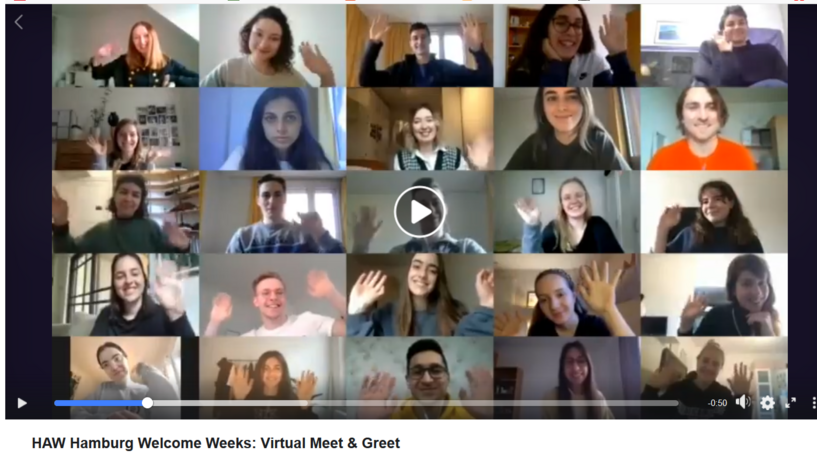Who are the new international students?
A total of 109 new international Bachelor's and Master's students from 32 countries have enrolled. The top countries of origin are India (12), Vietnam (11), Syria (10), Iran (9) and Russia (7), while the most popular degree courses are Public Health (18); Electrical Engineering (10); and Process Engineering, Biomedical Engineering and Logistics/Business Studies (6 each). Additionally, 59 visiting students from our partner universities in Europe and overseas have decided to complete study abroad semesters at HAW Hamburg. Thirteen of them are already in their second semester. The visiting students are from the following countries: Belgium (2), Finland (1), Greece (1), Ireland (2), Israel (5), Italy (4), Kazakhstan (4), Netherlands (2), Poland (2), Portugal (3), Romania (1), Switzerland (3), Spain (21), South Korea (2), Turkey (2) and the United Kingdom (1). The most popular degree courses among the visiting students are Design, Biomedical Engineering, Nutrition and Home Economics, Environmental Engineering, and Computer Science.
How many international students are there overall at HAW Hamburg?
A total of 1,640 foreign students who are completing a Bachelor's or Master's degree are enrolled at our university (winter semester 2020/21). On top of this are 335 Chinese students at the Shanghai-Hamburg College, who are completing degrees at the University of Shanghai for Science and Technology, as well as the visiting students. The top-10 countries of origin for the foreign students are Syria (185), Vietnam (151), Indonesia (93), Iran (84), India (70), Russia (70), Ukraine (53), Morocco (50), Nepal (43), Nigeria (40), Afghanistan (40) and Egypt (40).
Digital Welcome Weeks
For the first time, the Welcome Weeks took place exclusively online. Students were informed in advance and as part of meet-and-greet events about the regulations for entering Germany, quarantine measures and protective measures for stemming the spread of the coronavirus, and the buddy teams received a set of FFP2 masks. In addition to informational events on Erasmus formalities, intercultural student initiatives, a virtual tour of Hamburg City Hall, a pub quiz and tips on 'surviving' in Germany, even the welcome dinner that concludes the Welcome Weeks took place online. The student exchange coordinators in the faculties also contributed sessions as part of the Welcome Weeks.
How are international students at HAW Hamburg managing during the Covid-19 pandemic?
The Covid-19 pandemic has been especially challenging for international students, who generally don't have family or a network nearby to step in during emergencies and provide support. International students are generally not entitled to receive BAföG (federally funded student financial assistance) and only about half of them receive financial support from their parents. In comparison, 88 per cent of German students receive financial support from home. Approximately 75 per cent of all students in Hamburg need to work in order to finance their studieshis, and this applies equally to German and international students. But there is one big difference: international students rarely find well-paid, long-term jobs.
Anyone who would like to assist international students who are experiencing financial difficulties can do so via the Verein der Förderer Ausländischer Studierender, a non-profit organisation intended to support high-achieving students from around the world in emergencies. These students are given financial assistance so that they can concentrate on important exams and successfully complete their studies without financial worries. The organisation's emergency fund is administered on a volunteer basis by the International Office; 100 per cent of membership fees (€5 per month/€2.50 for students) and donations goes directly to funding the students.
Author: Martina Schulze, Head of the International Office
Information about the weBuddy programme is available here.
Information about the Verein der Förderer Ausländischer Studierender (VDFAS) is available here.

